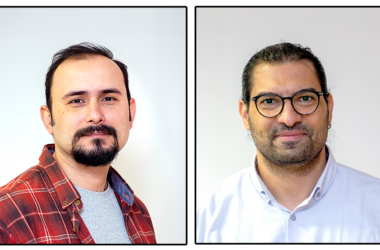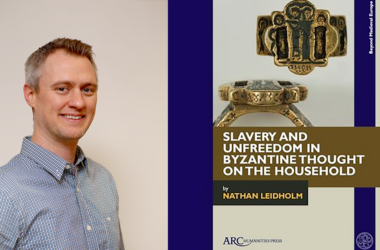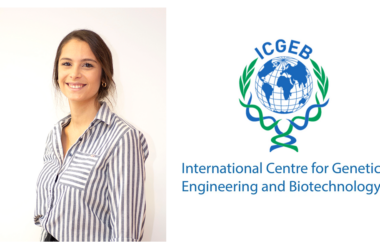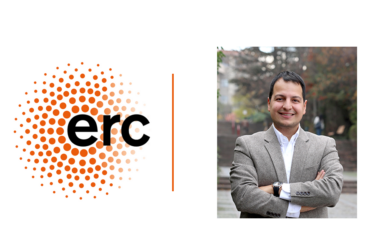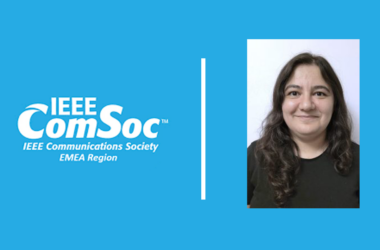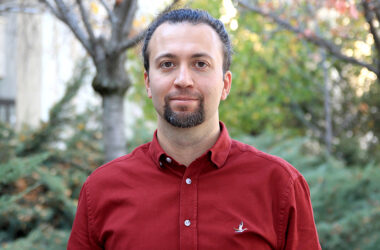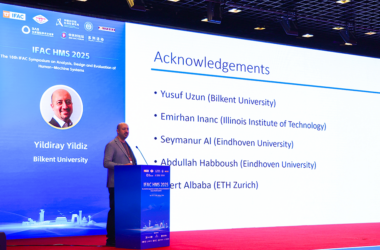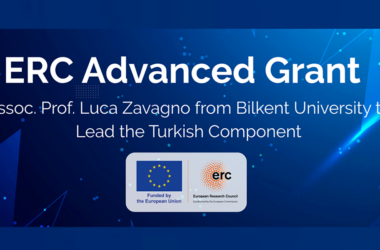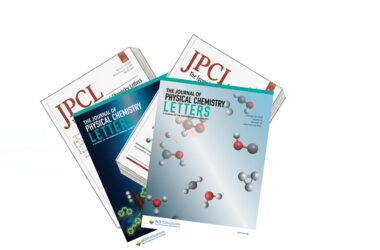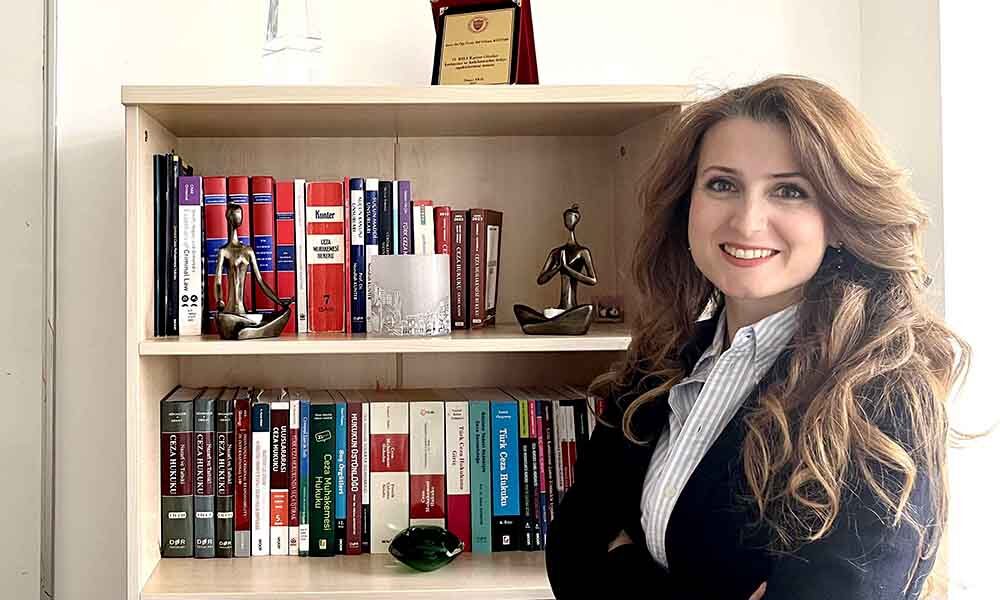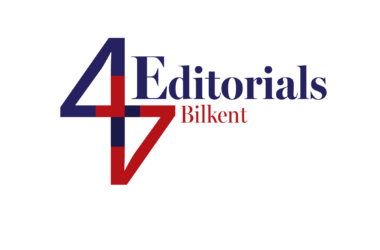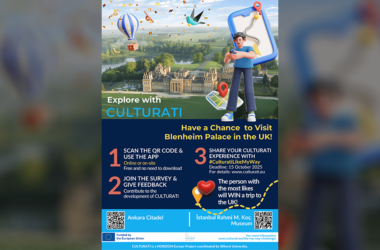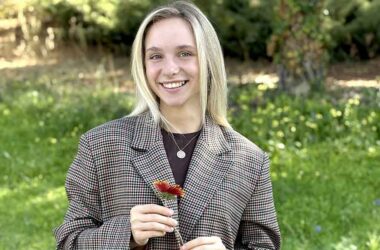BY PELİN SU UZUNCAGİL (AMER ’25)
Elif Gökşen Köstem is an assistant professor at the Faculty of Law in Bilkent University. She specializes in criminal law, criminal procedure law and international criminal law. She worked at the United Nations High Commissioner for Refugees and she practiced law as a criminal lawyer. She also worked at the International Criminal Court as a visiting professional. After getting her BA in Law from Bilkent University in 2010; she got her master’s degree on Criminology and Criminal Justice at the London School of Economics and Political Science with Chevening Scholarship and master of public law from Galatasaray University. She was a visiting scholar in Colombia University with Fulbright Scholarship and got her PhD from Ankara University in Criminal Law and Criminal Procedure. She is giving courses such as LAW 211 (Basic Concepts of Law), LAW 203 (Criminal Law), LAW 358 (Criminal Law Special Provisions), LAW 371 (International Criminal Law) and LAW 411 (Criminal Procedure).
Why did you choose an academic career?
Academia is not my first profession. I previously worked at the United Nations High Commissioner for Refugees, I practiced law as a criminal lawyer and then I moved to academia. I believe that a person should pursue a profession that provides opportunities for self-actualization. The best way for me to do this was to be an academic, I knew that from the very beginning but I also tried other professions.
What do you like the most about being at Bilkent?
Itself, being at Bilkent. I am a Bilkent graduate. This place is not just a workplace for me. It has an emotional history for me. The most beautiful years of my life were here. I love being a Bilkenter. And I love different places on campus in different times in year.
What is the subject that you like to teach the most?
International criminal law and criminal procedure law. My field is criminal and criminal procedure law in general. I really like teaching international criminal law because this is my personal research. Criminal procedure is actually very technical but underneath of all these technical details, there is this deep philosophy of criminal law and their applications.
What projects are you working on currently?
Currently, I have a TÜBİTAK 3501 project. It’s mainly focusing on the criminal liability arising from migration management agreements between Italy and Libya. The migrants are kept in Libya, and it has been discovered by several human rights organizations that these people in Libya have become victims of crimes against humanity. Therefore, my research centralizes the possible criminal liability of Italian leaders for continuously supporting and assisting these sorts of migration management agreements while knowing that these people will be victims of international crimes.
The project has many different pillars. It has causality pillars in international criminal law, a mens rea pillar in international criminal law, and it has a specific pillar in which we will discuss the types of crimes in Libya.
Apart from this project, I am also simultaneously working on some other research, such as universal jurisdiction application in Turkish criminal law and the theory of fair labeling and its importance in the procedures of international criminal law.
What’s your best work?
I started as an academic in September, 2023. When you consider the time period that I have been in university, it’s not that long; therefore, I cannot nominate that something is my best work, but there are a couple of things which are very important to me. For example, I published an article on Gaza and the ICC arrest warrant request. I felt so responsible as someone working on international criminal law. This is a special article for me because at least I wrote something on Gaza.
Also, I published an article on proportionality in refugee exclusion a couple of years ago. That was actually the fruit of a very long-time work because I started working on that article when I was working at the UNHCR with the refugees, and I conducted its research at Columbia Law School. I presented it in many different research platforms and received feedback. It’s the combination of many years of hard work.
What has been the most exciting moment of your career so far? Could you share a turning point or defining moment in your career?
Two things come to my mind. One is in 2019 when I received the Outstanding Young Lawyer Award of the International Bar Association. That was a moment in my career that I still remember.
The other one was again in 2019 when I started working as a visiting professional at the International Criminal Court. That was a wonderful moment in my career that I remember with positive emotions.,
When and where do you do your best thinking?
Normally I am a very picky person on locations. I used to study on the very same desk in the libraries. I sit at the very same table in the cafes that I go to quite often. When it comes to studying and thinking, I would say, lately it’s my office. I do my best thinking in my office most of the time. Sometimes it gets, you know a little bit stressful or I distract myself or for some other reasons I escape to a coffee shop. I find this change quite useful in terms of thinking.
“When” is another question. I’m not saying this with pride, but you know there is this owl and
lark analogy for early risers and late nighters and I am an owl type of a person. I generally do my best thinking at night. People sleep, it is the complete silence, it’s the end of the day, it is the closure of everything, there is nothing left and I can concentrate. But I’m trying to change that because of family responsibilities. It’s not a good thing to be a late nighter for studying, but it’s in my nature.
Other than this, I can also do my best thinking in early mornings when nobody’s around. I think it generally depends on my mood.
What distracts you?
Me… I distract myself. So, it is very difficult to sustain a high level of concentration, because we have so much outputs, social media, news, communication is very easy and it’s very easy for us to distract our concentration, but I blame myself for that because each time when I see a message and I hear something, it is me who wants to turn back to the other things or look for another thing.
But I have at least some flows of concentrations, which I realized based on my experiences over the years. I realized that when I am in deep concentration, I may not get distracted that easily. It is generally a pattern for me when I do something that I really like to do, when I read something that I really want to read. If I’m in a deep concentration, that’s good for me because I may not get distracted that easily. But if not, I distract myself, I am the one who is responsible and I can be distracted very easily.
What are you most curious about?
Neuroscience. Whenever I read about neuroscience; it really fascinates me. The way the brain works, its functions, learning patterns, neuroplasticity…
These are all very interesting areas for me and I really like reading or listening to a podcast on them.
What do you like to do when you are not working?
Reading fiction and traveling. I really like traveling and I’m a serious traveler. I wake up very early. I always have a plan for the day. I want to cover everything, or at least as much as I can. I take traveling seriously. I also like spending time in the kitchen and it is a nonstress moment for me. When I feel so stressful, or angry I generally throw myself into the kitchen to do something, to create something there. It is like my playground. Though, I don’t promise about the quality of the outcome.
Which books have influenced you the most, and why?
Many. But lately, I have been thinking about Sabahattin Ali. I think he’s a great writer. His book called İçimizdeki Şeytan (The Devil Inside Us) is a great book and in terms of its social analysis it is very special for me. Here is a famous quote from İçimizdeki Şeytan that comes to my mind:
“The devil inside us is a means to excuse ourselves from not being all that shrewd… There is no devil inside us; there is helplessness, laziness, lack of will, ignorance and something more frightening than all of these; there is a habit of avoiding seeing the truth.” says Sabahattin Ali.
Which films have influenced you the most, and why?
That’s a difficult question because with the spirit of time I also started to watch series. But I love Robin Williams as an actor. His What Dreams May Come True is a metaphoric movie. It shows important metaphors about the heaven and hell. And of course the Good Will Hunting is really nice.
If you weren’t an academic, what career would you choose?
I think I already tried other professions before being an academic. Maybe I would answer this question as if not law what else I could study. If I would not be a lawyer, I would be doctor. That was such a difficult dilemma for me when I chose literature and mathematic department at the high school. I really like being a lawyer in general sense. I would like doing anything related to public law. If I wasn’t an academic, I would probably continue be a criminal lawyer because I really like that resistance and challenge in legal defense.
What is the secret of leading a happy life?
I’m not an expert on happiness but I just have some personal opinions about what it is. For me happiness is a state of mind. It is not something that we can search and we can find. Therefore, it is not something that we can look for. As I personally describe it as a state of mind, I believe we can learn happiness and also, we can teach. I don’t think that we are able to look for happiness, and it is not something that we will discover at the end. It lies in small moments of life. It’s in the simplicity. For me, the answer of happy life is spending time with my family. But I’m not really meaning big events, or important things but small things. Having a coffee together, preparing breakfast, sharing time with friends… Collecting moments is happiness and that is a happy life.
If you could go back to your undergraduate/graduate student years, what advice would you give to your younger-self?
Extend your horizon and enjoy every moment. Because it passes super quickly. Get the most of it from all of your professors and from the classes.
But maybe most importantly, surround yourselves with people who love you and people who cherish and appreciate you. That’s what wealth is; having people who love you and you love them back.
I think that’s something we generally miss because undergraduate years pass super quickly, and you may not realize it. But being able to surround yourself with people who love you, I think it’s the most important thing and by the time this will be the base of trust in your future life.
